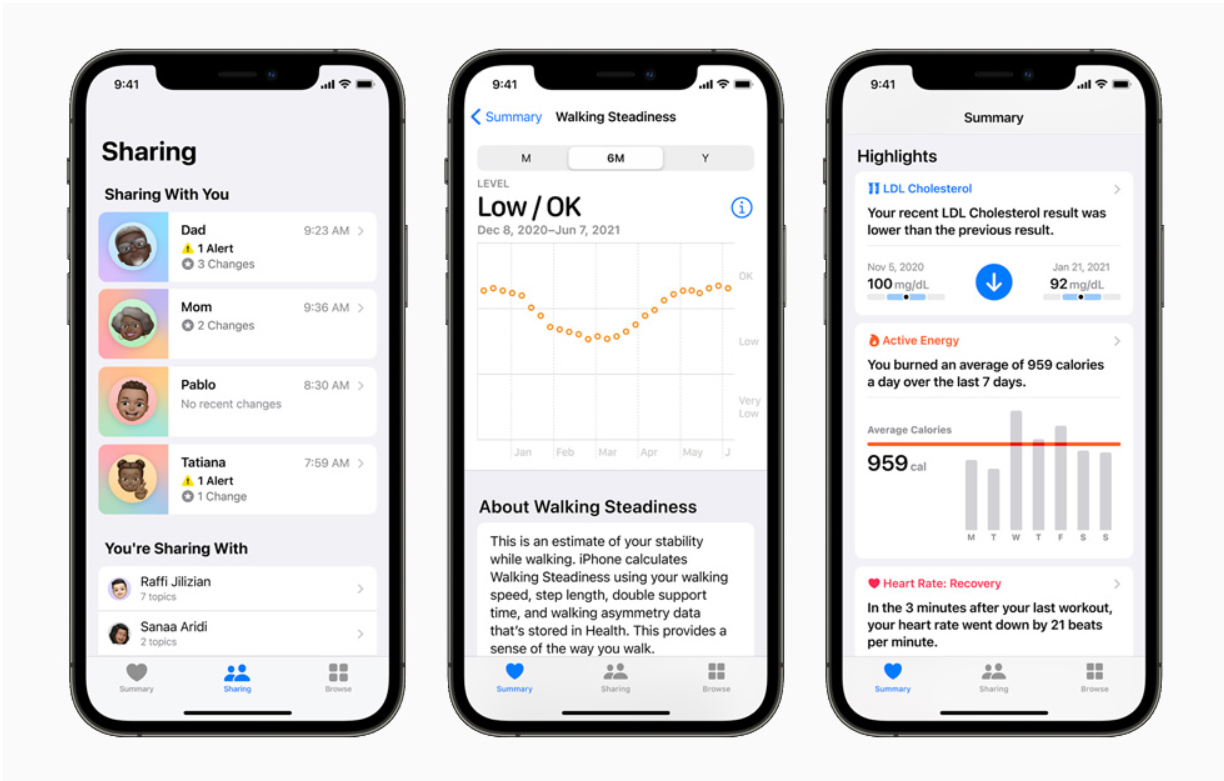Dive Brief:
- Apple on Monday unveiled new health features for its devices, including a health record tool aimed at making it easier for users to share health information with their doctors and others.
- In the Apple health app, users can now choose which contacts, including physicians, friends and family members, can access their protected health information, such as cholesterol levels or their physical activity history, the tech giant announced at its annual Worldwide Developers Conference.
- The app will also allow patients to learn more about lab tests and their results without having to run an Internet search. Apple also added hearing assistance, a mobility feature and a respiratory tracker on its devices.
Dive Insight:
Apple’s HealthKit was already compatible with EHRs. But now, amid an ongoing government push to free up siloed health information and spur data sharing in healthcare, the Silicon Valley giant is rolling out new product features that could make it simpler for patients to keep physicians up to date with their health.
The new capabilities allow loved ones or doctors, with patients’ permission, to review trends like sleep quality or blood glucose level, or receive notifications about anything out of the ordinary, like a sudden change in heart rate or a potential fall. They’re not real-time emergency alerts, but meant to facilitate monitoring and conversations about health and wellness, Apple said.
For doctors at participating organizations or with software made by select vendors like Cerner, Allscripts, Athenahealth or DrChrono, users’ shared health data will pop up directly in their record without having to download a separate application or open another tab.
At the conference, Apple gave two examples of users who might be interested in the enhanced data sharing: a partner looking at fertility window insights or a physical therapist looking at the mobility data of a patient with Parkinson’s disease.

Courtesy of Apple
Apple, which has long positioned itself as the most privacy-conscious tech company, says users’ protected health information will be encrypted both on their phone and in transit, and will never be shared with the company. Health data is among the most heavily regulated types of data in the U.S., and recent controversies over R&D partnerships between providers and private tech giants have illustrated the importance of carefully and transparently handling sensitive information.
Since rolling out its initial health record tool in 2018, Apple has steadily added more features, amid a broader effort from tech companies and health data startups to create a single record where patients can manage their reams of health data. News broke in April that rival Google has renewed interest in an EHR tool, after shuttering its initial record project 13 years ago.
Along with new versions of its operating systems at its annual technology showcase, Apple also unveiled in-app tools to help people understand their lab results. Users can click on results of a lab to see what the lab test is meant to study and whether their numbers are within normal ranges.
Additionally, Apple is launching new mobility capabilities for its iPhone. Using information from its motion sensors, the phone can now collect data on someone’s balance, stability and coordination by measuring stride length and timing, and warn them they might be at risk for a harmful fall if they’re walking unsteadily. Usually, fall risk is assessed by a provider using a questionnaire and in-person exam.
Also, Apple’s AirPod Pros can now tune out background noise to help people with mild hearing impairments.
